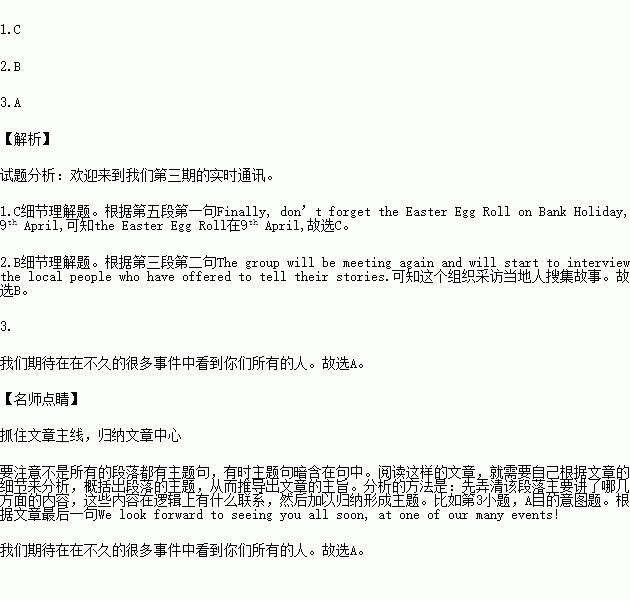题目内容
Welcome to our third newsletter of the year!
Our major activity for March is our Walk for the Woods fundraising event on Saturday, 17th March, starting any time between 10 a.m. and 2 p.m. We will be walking the distance between Warley Woods and Tipperary. It is indeed a long way—80 miles. The more people that you can get to sponsor you, the more money we can raise to help look after our beautiful woodland. More information is available on our website.
The Sunday volunteers planted two beeches and an oak last week. This was thanks to the money from the Big Tree Plant and to Lisa and Gordon Whitaker, whose friends gave money for the big trees instead of for their wedding presents. Thanks to everyone who took part.
There were 15 volunteers at the Oral History Training Day which was led very ably by Julia Letts. The group will be meeting again and will start to interview the local people who have offered to tell their stories. We are happy to hear from others who would like to be interviewed about their memories of the Woods for the project. If you or anyone you know is interested, please call Viv Cole at the office. This project is financed by Heritage Lottery Fund.
There was a huge response to the Forest Schools activities held at half term. These will be held again during the Easter holidays on the following dates: 4th April from 10 a.m. to 3 p.m. for over 8s. On 12th April from 10 a. m. to 12 noon, there will be a Teddy Bears’ Picnic for the under 8s. All these must be booked in advance.
Finally, don’t forget the Easter Egg Roll on Bank Holiday, 9th April, starting at 11 a.m. Bring your own hard-boiled and decorated egg to roll down the hill in the woods. The first past the finishing line will win a large chocolate egg! This year, due to popular demand, there will also be an Adults’ Easter Egg Roll following the children’s competition.
We look forward to seeing you all soon, at one of our many events!
1.Which of the following will be on 9th April?
A. Walk for the Woods.
B. Teddy Bears’ Picnic.
C. The Easter Egg Roll.
D. The Oral History Training Day.
2.Heritage Lottery Fund provides money to _____.
A. help look after the woodland
B. collect stories about the community
C. hold activities for the Forest Schools
D. organize the Easter holiday competitions
3.The passage is written to _____.
A. inform people of the coming events
B. encourage people to work as volunteers
C. invite people to take part in the competition
D. tell people about some famous organizations
 阅读快车系列答案
阅读快车系列答案
